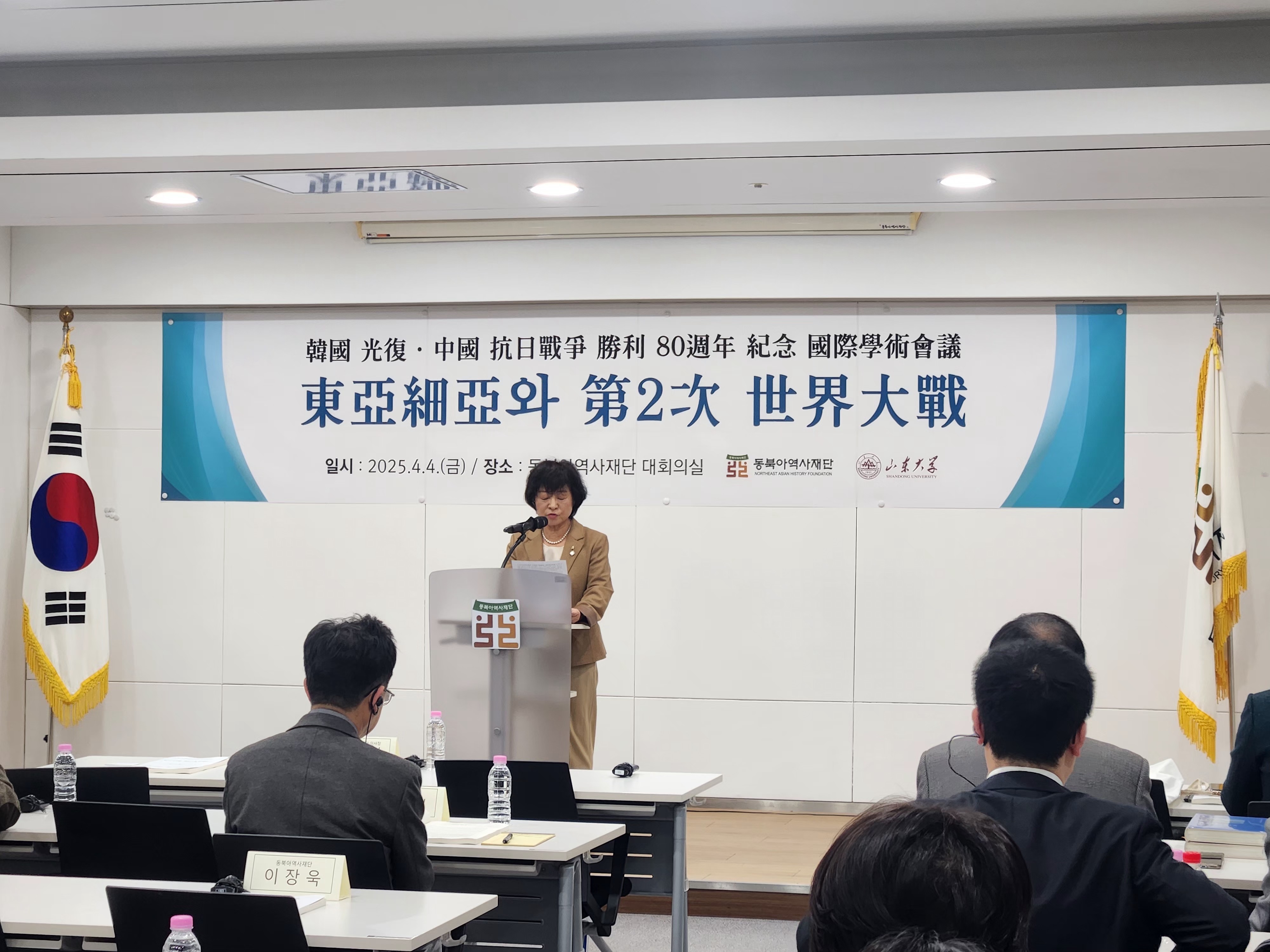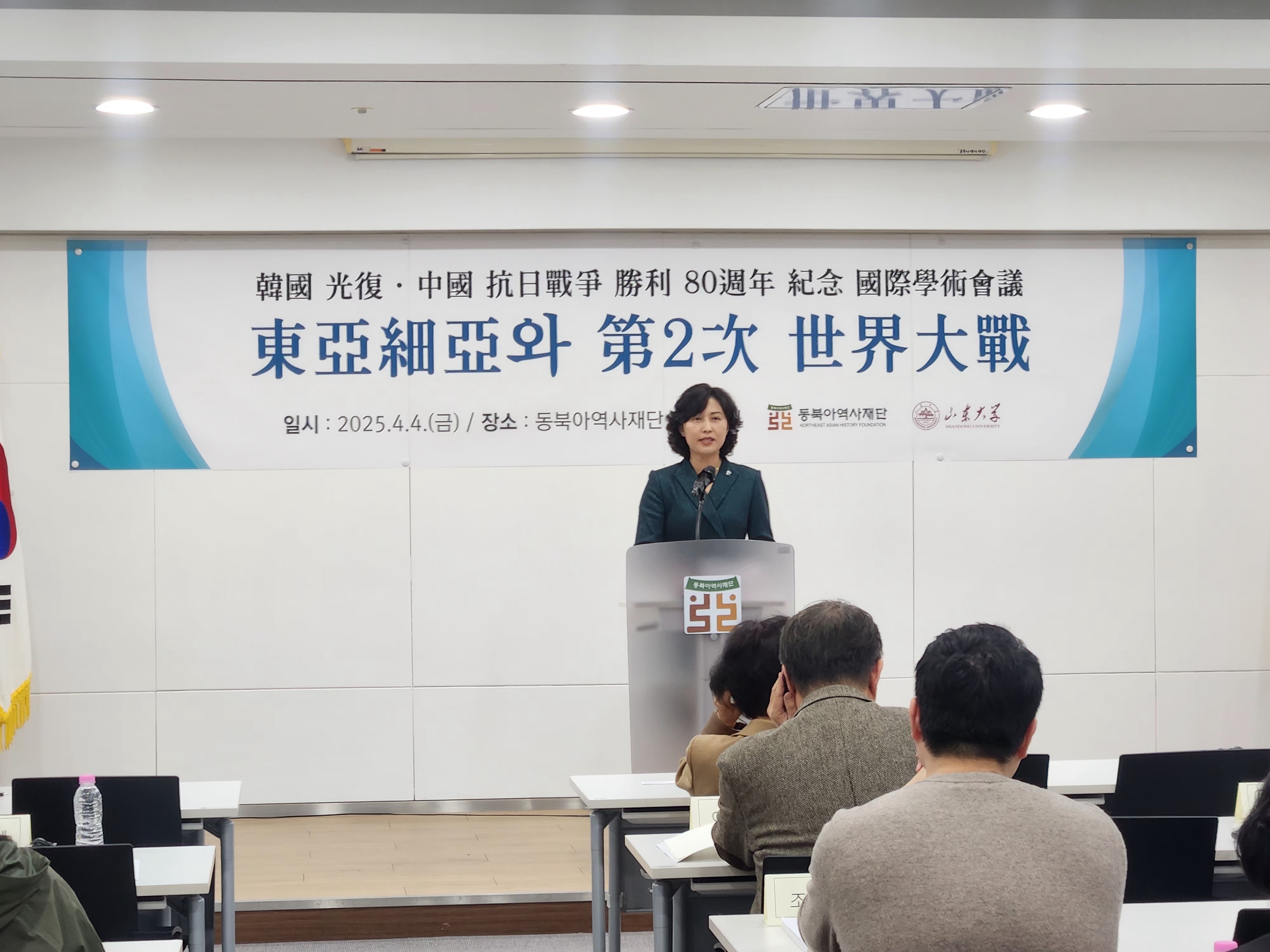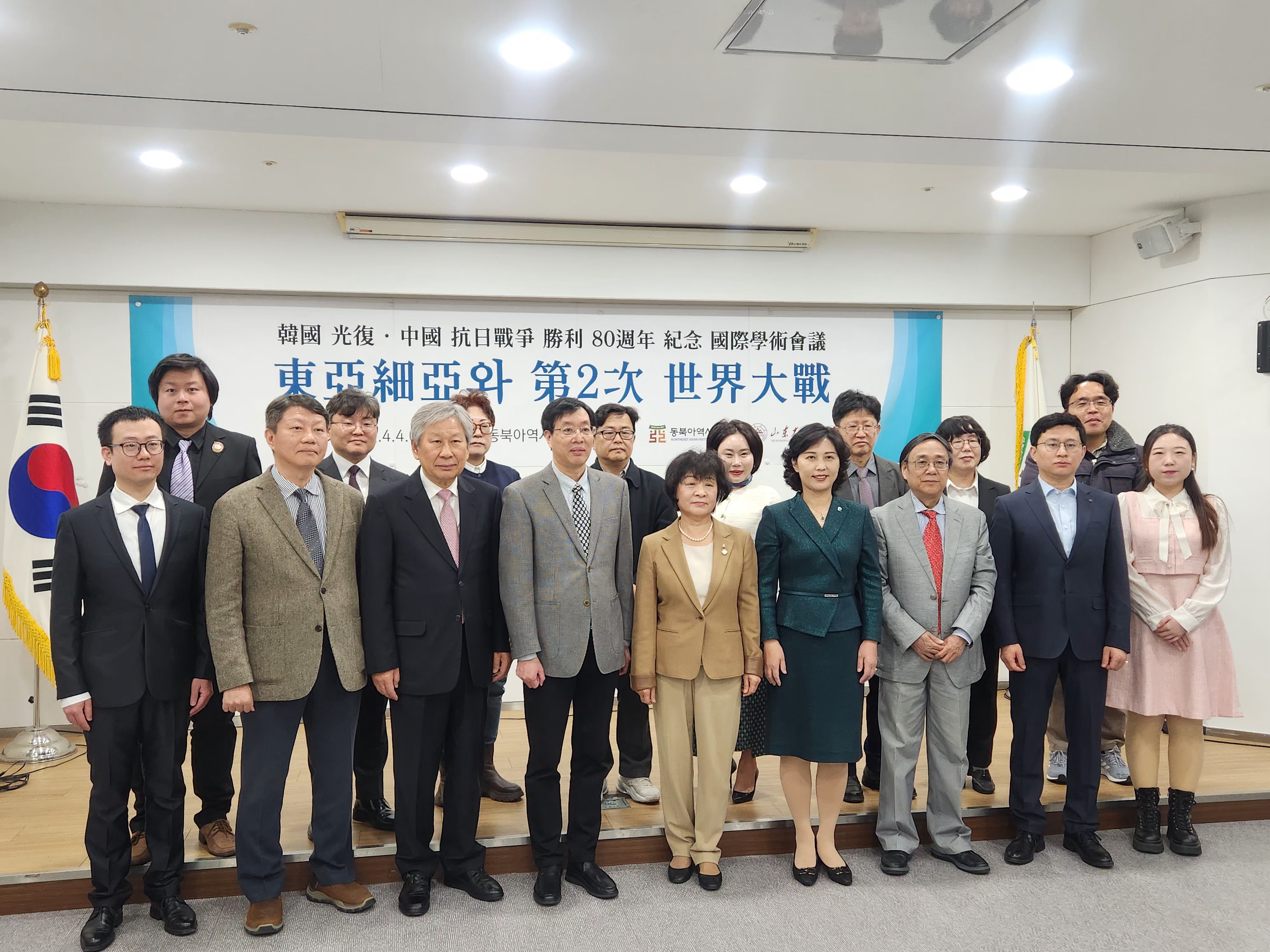Title International Academic Conference on "East Asia and World War II" Co-hosted with Shandong University
- Date2025.04.07
- Hit870



On Friday, April 4, the Northeast Asian History Foundation co-hosted an international academic conference with Shandong University at the Foundation’s main conference hall under the theme "East Asia and World War II." This conference was part of ongoing academic exchange efforts between the two institutions. In May 2024, the Foundation signed an MOU with Shandong University to promote mutual understanding through active Korea-China academic cooperation, including a visiting scholar program centered on early-career researchers.
The conference featured four presenters from both Korea and China, who shared research findings and perspectives on topics such as international relations during the Second Sino-Japanese War and World War II, Japanese military war crimes, and historical memory of the war.
Xu Chang (Shandong University), in a presentation titled "Bayonets and Candy," analyzed the contradictory public perception in which the Japanese military, despite having brutally massacred numerous children in the Lushi and Jinan regions, was nonetheless viewed by civilians as being kind to children.
Jungae Park (Northeast Asian History Foundation) traced the route of Korean victim Park Young-shim, who was forced into a comfort station in Nanjing after the outbreak of the Sino-Japanese War and later relocated to another in Songshan, Yunnan Province, where she remained until the war's end. Park's postwar journey to reveal her real name and face as a victim and her campaign to support fellow victims were also introduced.
Jihye Yang (Daegu National University of Education) examined the politics of memory and historical debates surrounding the inscription of Japan’s modern industrial facilities as UNESCO World Heritage sites, highlighting that some of these facilities, such as those on Hashima Island (Gunkanjima), also forced Chinese laborers—making it a shared historical issue for China.
Janghoon Son (Northeast Asian History Foundation) analyzed how China evaluates and remembers the Hundred Regiments Offensive, a major anti-Japanese campaign.
President Jihang Park expressed hope that this conference would serve as a venue for rediscovering and comparing the shared and divergent experiences of Korea and China within East Asia’s complex modern history. She emphasized that overcoming the conflicts stemming from differing historical perspectives requires broad-based exchange and cooperation, a willingness to understand the other side through empathy, and efforts to pursue common values while acknowledging differences.
